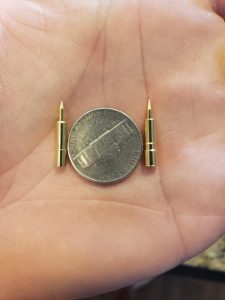This week, Congress decided to figure out exactly what happened with GameStop Corp.’s (NYSE: GME) wild rollercoaster ride and Robinhood’s part in it.
After a day of testimony, no major breakthroughs emerged for politicians of either political party.
But one thing did come up again and again: Robinhood’s payment-for-order-flow business model.
If any of us have any hope of understanding just what happened with GameStop and others over the last month, especially through Robinhood trades, we have to understand this business model.
Payment for order flow is in all reality just another type of commission. Sure, places like Robinhood are commission-free. Meaning traders don’t have to pay Robinhood directly to buy and sell shares and options through its platform. But that doesn’t mean Robinhood doesn’t make money somehow.
Trading equities and options aren’t as straightforward as it seems. There are multiple moving parts before any trade can be completed and settled.
One of the most important pieces in this puzzle is the market maker. Since both stocks and options are traded on different exchanges at different prices all day long, it takes a large intermediary to match buyers and sellers.
This is the market maker’s job. It profits from the spread between the bid and ask price, or the price the buyer is willing to buy a stock and the price a seller is willing to sell that same stock. For most stocks with relative liquidity, this is no more than a few pennies. But on millions of shares, that adds up.
Source: Investor Trading Academy
The broker, which is how both buyers and sellers get access to the market maker, then gets a commission from this spread for bringing that traffic to the market maker itself. These are even smaller, usually just a fraction of a penny per trade.
The market maker pays the broker this for bringing it the buyers and sellers. That’s Robinhood’s business model.
Instead of charging you when you buy shares, it gets an infinitesimally small cut of the spread itself. The more trades through its platform, the more fractions of pennies it gets.
So, why is this a problem?
Market makers’ most important job, besides connecting buyers and sellers, is to hold risk. You see, rarely will you ever find a buyer and a seller wanting to trade the exact number of shares at the same second.
For the whole process to work, the market maker has to buy excess shares (from sellers) and unload them through future buy orders.

Grab a piece of paper and pen to write this down…
Because you’re about to see the name and ticker symbol of the ONLY 5G STOCK every investor should own.
You can get the name and ticker of this company right here, no strings attached. But you better act fast…
Because the Federal Communications Commission, the government agency in charge of 5G, just scheduled a major announcement that would send shares soaring once announced.
Don't miss out. Click Here to Get #1 5G play for 2020 before the next market close.
But when there are almost no sell orders, as was the case with GameStop, the market maker wasn’t able to find the shares to sell to the buyers.
Interestingly, right when the market makers were hitting this wall, Robinhood halted buy orders. But it did not halt sell orders.
That’s the interesting part of this because Robinhood self clears Its transactions.
Here’s the problem. At least, this is what Congress is trying to ascertain. To keep the market maker working to complete orders, did Robinhood halt buy and not sell orders?
If so, that means the retail broker was not acting on behalf of its customers – you and me. It was acting to keep the market maker going, and therefore continuing to collect its small fractions of pennies. It didn’t matter what effect this would have on GameStop’s share price.
This, as you can see, is a dangerous road to go down. Instead of acting on behalf of the customer, it might be that it was treating the customer as the product itself. Manipulating traders into keeping its own profits going.
Of course, this is all yet to be determined. Robinhood claims to have halted buy orders on GameStop to protect traders.
I won’t speculate so publicly whether this is true or not.
But the very fact that Robinhood’s business model could lead it to make such a call even if it isn’t in the best interest of its customers is worrisome.
This is one story that we’ll simply have to keep following, no matter how convoluted it is.
As nearly all brokers have switched from commissions, it’s important we all understand the pros and cons of payment-for-order-flow model.
I’m going to be sharing more of my insider knowledge on this subject in the following days and why payment-for-order-flow model benefits traders like us.
It doesn’t benefit the big banks, institutions, and exchanges.
So, this battle you see playing out has nothing to do with the little guy, we’re being used a pawn.
To your prosperity and health,
Joshua M. Belanger